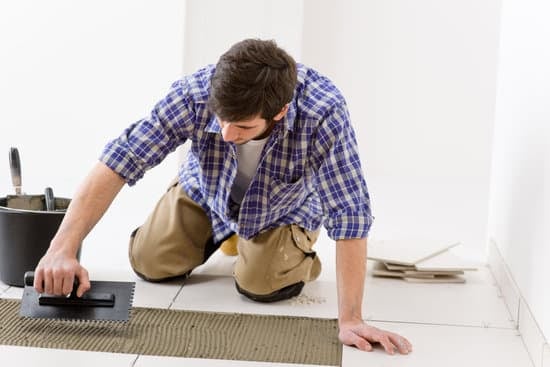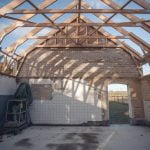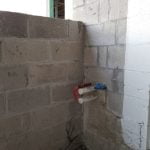Are you wondering, “Can I deduct home improvements from my taxes?” Home improvement expenses can potentially be deducted from your taxes if they meet certain criteria. Whether you’re renovating for energy efficiency or making modifications for medical reasons, there are ways to save on your home improvement costs through tax deductions. Understanding the rules and guidelines surrounding these deductions can help you make informed decisions about your home projects and expenses.
One of the key considerations when it comes to deducting home improvement expenses is whether the improvements qualify for tax deductions. This involves understanding the types of improvements that may be eligible, as well as the documentation and record-keeping requirements necessary to support your deduction claims.
While there are limitations and restrictions on what can be deducted, there are also strategies for calculating the deduction for home improvements that meet the criteria. Consulting a tax professional can provide valuable guidance and advice on maximizing potential deductions while staying compliant with tax laws and regulations.
Making informed decisions about your home improvement projects, understanding the potential tax benefits, and considering other ways to save on costs can ultimately help you optimize your financial resources while enhancing your living space.
Qualifying for Home Improvement Tax Deductions
Qualify for Tax Deductions
, so homeowners should familiarize themselves with the requirements set by the Internal Revenue Service (IRS) to ensure they meet the necessary qualifications.
Eligibility Requirements
In order for a homeowner to deduct the expenses of their home improvements from their taxes, the improvements must meet specific criteria set forth by the IRS. Typically, these improvements must add value to the home or prolong its useful life in order to qualify as deductible expenses. Additionally, the improvement must be considered a “capital improvement,” meaning it enhances the property rather than simply maintaining it.
The Importance of Proper Documentation
Must Keep Detailed Records
of all expenses related to the improvements, including receipts, invoices, and contracts with contractors or service providers. These records will be crucial in substantiating the costs incurred and proving eligibility for any potential deductions during tax filing. Without adequate documentation, homeowners may find it challenging to support their claims for tax benefits related to home improvements.
Types of Home Improvements That Can Be Deducted
When it comes to tax deductions for home improvements, not all types of improvements are eligible. The IRS has specific guidelines on the types of improvements that can be deducted from your taxes. Understanding which home improvements qualify for tax deductions can help homeowners maximize their savings and avoid any potential issues with the IRS.
Energy-Efficient Upgrades
One of the most common types of home improvements that can be deducted from taxes is energy-efficient upgrades. This includes installing solar panels, energy-efficient windows, doors, and roofing materials, as well as insulation and heating/cooling systems. These upgrades not only improve the energy efficiency of a home but also come with potential tax benefits in the form of deductions or credits.
Medical Necessity Improvements
Another type of home improvement that can be deducted from taxes is those made for medical necessity. For example, if you install wheelchair ramps, grab bars in bathrooms, or make other modifications to accommodate a disability or medical condition, these expenses may be eligible for tax deductions. However, it’s important to keep detailed documentation and receipts to support these deductions.
Home Office Renovations
If you use a portion of your home exclusively for business purposes, certain renovations or improvements made to that area may also qualify for tax deductions. This includes renovations to create a dedicated home office space, such as adding walls or upgrading electrical outlets. However, it’s crucial to ensure that the improvements are directly related to your business activities and comply with IRS guidelines.
Understanding which types of home improvements can be deducted from taxes requires careful consideration and adherence to IRS regulations. In addition to these specific categories, there are other criteria and limitations that homeowners should be aware of when seeking tax deductions for home improvements.
Documentation and Record-Keeping Requirements
When it comes to deducting home improvements from your taxes, one of the most important aspects to consider is proper documentation and record-keeping. Without the necessary paperwork and evidence, you may find it difficult to claim these deductions or face challenges if audited by the IRS.
Keep all receipts, contracts, invoices, and any other relevant documents related to your home improvement projects. This includes materials purchased, labor costs, permits obtained, and any other expenses incurred during the renovation or improvement process. These documents serve as evidence of the expenses you’ve claimed for tax purposes.
It’s also crucial to keep detailed records of the dates and descriptions of the home improvements. This information will help support your claim should you need to provide further clarification or evidence to the IRS. Additionally, maintaining clear and organized records can save you time and stress during tax preparation season.
| Expense Type | Amount |
|---|---|
| Materials | $5,000 |
| Labor Costs | $3,500 |
By staying on top of your documentation and record-keeping requirements for home improvement expenses, you can ensure that you are prepared to maximize your potential tax deductions. Should there be any questions or concerns regarding claiming home improvement expenses on your taxes, consult with a trusted tax professional for guidance and advice.
Limitations and Restrictions on Deductions
When it comes to deducting home improvement expenses from your taxes, there are certain limitations and restrictions that you need to be aware of. While it is possible to qualify for tax deductions on certain types of home improvements, there are specific criteria that must be met in order to claim these deductions.
Below are some key limitations and restrictions to keep in mind:
- Income Limitations: In some cases, there may be income limitations that can affect your ability to claim home improvement tax deductions. For example, if you earn above a certain income threshold, you may not be eligible for certain deductions.
- Primary Residence Requirements: Generally, home improvement tax deductions are only available for expenses related to your primary residence. This means that if a particular improvement is made to a secondary or vacation home, it may not qualify for a tax deduction.
- Capitalization Rules: The IRS has specific rules regarding the capitalization of home improvement expenses. In some instances, rather than deducting the full cost of an improvement in the year it was made, you may need to capitalize and depreciate the expense over time.
It’s important to note that the details of these limitations and restrictions can vary based on individual circumstances and the specific nature of the home improvement expenses. Consulting with a qualified tax professional can provide personalized guidance on how these limitations apply to your situation.
In addition, keeping thorough documentation and records of your home improvement expenses is crucial in order to support any potential tax deductions. This can include receipts, invoices, contracts, and other relevant paperwork that demonstrate the costs incurred for qualifying improvements.
By understanding these limitations and restrictions, homeowners can better navigate the process of claiming tax deductions for their home improvement expenses. However,can i deduct home improvements from my taxes? seeking professional advice from a tax professional is essential for accurate guidance tailored to your individual circumstances.
How to Calculate the Deduction for Home Improvements
When it comes to calculating the deduction for home improvements on your taxes, there are specific steps and criteria that need to be followed. Here’s how you can go about determining the tax deduction for your home improvement expenses:
1. Determine the cost of the home improvement: The first step in calculating the deduction for home improvements is to determine the total cost of the home improvement project. This includes not only the materials and labor costs but also any additional expenses such as permit fees or contractor fees.
2. Identify any energy-efficient upgrades: If your home improvement project included any energy-efficient upgrades such as solar panels, energy-efficient windows, or a new HVAC system, you may be eligible for additional tax credits.
3. Calculate the depreciation value: For certain types of home improvements, you may be able to claim a depreciation value over time. This is especially true for improvements that add value to your property, such as a new roof or a kitchen remodel.
It is important to keep in mind that there are limitations and restrictions on deductions for home improvements. Consulting with a tax professional can help ensure that you are maximizing your deductions while staying within IRS guidelines and regulations. A tax professional can provide guidance on what expenses qualify for deductions and how best to calculate them in order to benefit from potential tax savings.
Overall, seeking professional advice is essential when trying to work through complex issues like this one because they have an understanding of federal law surrounding property repair and maintenance and know what taxes can i deduct home improvements from my taxes techniques apply best given your individual situation.
Other Ways to Save on Home Improvement Costs
When it comes to home improvements, not all expenses can be deducted from your taxes. However, there are certain types of home improvements that may qualify for tax deductions. One important thing to consider is whether the improvement adds value to your home or if it’s for medical purposes.
Home improvements that increase the value of your home, such as adding a new bedroom, bathroom, or renovating your kitchen, may be eligible for tax deductions. On the other hand, medical home improvements that are specifically made for individuals with disabilities or medical conditions can also qualify for deductions.
It’s important to keep in mind that regular repairs and maintenance are typically not eligible for tax deductions, so it’s crucial to differentiate between home improvements and general upkeep. Additionally, any personal use portions of the home improvement expenses cannot be deducted from your taxes. Consulting with a tax professional can help you determine if the specific home improvement expenses you have incurred are eligible for tax deductions.
Documentation and Record-Keeping Requirements
In order to claim a deduction for your home improvement expenses, meticulous documentation and record-keeping are essential. This includes keeping receipts, invoices, and any other relevant documents related to the improvement project. These records will serve as evidence when filing for deductions and will help support your claim in case of an audit by the IRS.
It’s also important to keep a detailed record of the date when the home improvement was made, the purpose of the improvement (value-added or medical), and any professional services contracted for the project. Having organized records can streamline the process of claiming deductions and ensure compliance with IRS requirements. Without proper documentation, it can be challenging to substantiate your claims for home improvement tax deductions.
| Types of Home Improvements | Documentation Requirements |
|---|---|
| Value-adding improvements (e.g. new bedroom) | Receipts, invoices |
| Medical home improvements | Proof of medical necessity |
Consulting a Tax Professional for Guidance and Advice
In conclusion, the question “Can I deduct home improvements from my taxes?” is a common one for homeowners looking to save on their tax bills. As we have discussed, it is indeed possible to deduct certain home improvement expenses from your taxes, but there are specific qualifications, limitations, and documentation requirements that must be met in order to do so.
When considering whether you can deduct home improvements from your taxes, it’s important to consult with a tax professional for guidance and advice. A qualified tax professional can help you navigate the complex rules and regulations surrounding home improvement deductions and ensure that you are taking advantage of all available deductions while staying within the bounds of the law.
Ultimately, while deducting home improvements from your taxes can provide some financial benefit, it’s essential to approach this process carefully and with proper understanding of the requirements. By seeking guidance from a tax professional, you can maximize your chances of successfully claiming deductions for eligible home improvement expenses and avoid any potential issues with the IRS.
Frequently Asked Questions
Can I Deduct Home Improvements on My Tax Return?
It is generally not possible to deduct home improvements on your tax return. However, some home improvements that increase the value of your home may be added to the cost basis of your property, which can affect capital gains taxes when you sell.
What Qualifies as Capital Improvements?
Capital improvements typically include renovations or additions that add value to your home, prolong its life, or adapt it for new uses. Examples may include adding a new room, replacing the roof, installing a new heating system, or upgrading the electrical wiring.
What Is Tax Deductible for Homeowners?
Homeowners may be able to deduct mortgage interest, property taxes, and certain home-related expenses on their tax returns. Additionally, energy-efficient home improvements and medical-related home improvements may also qualify for tax deductions. It’s important to consult with a tax professional to ensure compliance with current tax laws and regulations.

I’m thrilled to have you here as a part of the Remodeling Top community. This is where my journey as an architect and remodeling enthusiast intersects with your passion for transforming houses into dream homes.





